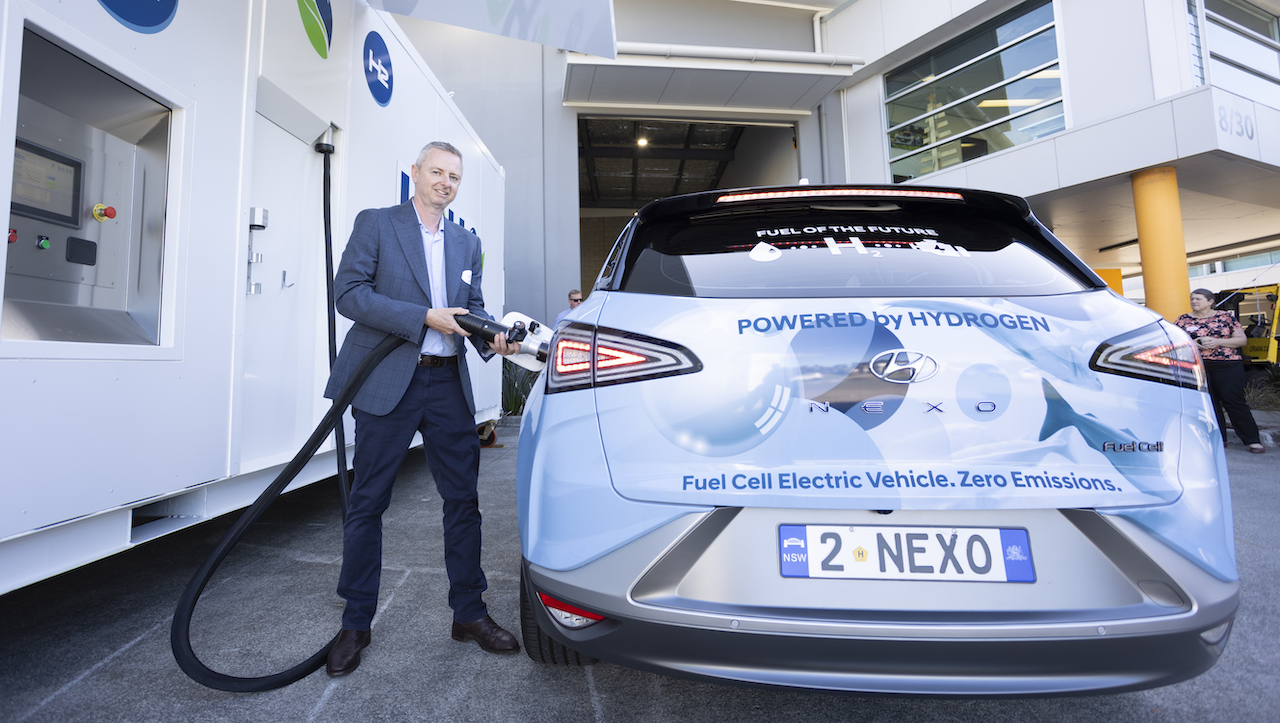H2CORE: Revolutionizing Hydrogen Refuelling in Australia
Key Ideas
- H2H Energy in Queensland has launched the H2CORE hydrogen refuelling product, housed in a portable shipping container, to address the lack of hydrogen infrastructure in Australia.
- The H2CORE offers rapid refuelling speeds and is designed for heavy vehicles like buses and waste trucks, with the ability to refuel a Hyundai Nexo in 3-5 minutes.
- This innovation is seen as a game-changer in the industry, providing locally compliant and supported refuelling systems that can potentially boost interest and uptake in hydrogen vehicles, including passenger cars and commercial fleets.
- The CEO of H2H Energy, Cranston Polson, highlights the growing interest in hydrogen refuelling solutions, especially in motorsport where manufacturers are transitioning towards hydrogen-powered race cars.
H2H Energy in Queensland, Australia, has unveiled the H2CORE hydrogen refuelling product as a solution to the lack of hydrogen infrastructure in the country. The H2CORE, housed in a portable shipping container, offers high-capacity refuelling for hydrogen-powered cars, trucks, buses, and boats. EVcentral attended the product launch at H2H Energy's Sunshine Coast facility, where the ease of transportation of the container was demonstrated. Currently, Australia has limited hydrogen refuelling stations, hindering the usability of fuel cell electric vehicles (FCEVs) like Hyundai's Nexo and Toyota's Mirai.
The H2CORE stands out for its rapid refuelling speeds and mobility, targeting 'return-to-base' fleet operators for commercial vehicle refuelling. With adjustable hydrogen dispensing and storage, the unit can refuel vehicles in minutes, making it a practical choice for heavy vehicles like buses and waste trucks. The CEO of H2H Energy, Cranston Polson, emphasized the industry's interest in hydrogen refuelling solutions, aiming to decarbonize operations.
This advancement is expected to drive interest in hydrogen vehicles in Australia, including passenger cars, by providing locally compliant and supported refuelling systems. Cranston Polson also sees potential in motorsport, with manufacturers transitioning to hydrogen-powered race cars. The development of hydrogen-fueled vehicles for events like Le Mans and the Extreme H championship signals a shift towards hydrogen as a long-term sustainable alternative in the automotive industry.
Topics
Public Transit
Technology
Innovation
Transportation
Environment
Commercial Vehicles
Australia
Hydrogen
Refuelling
Latest News
